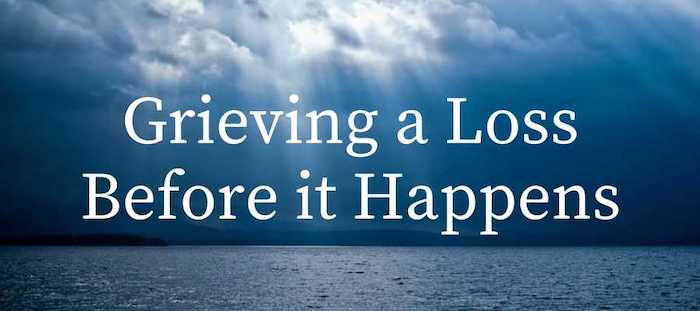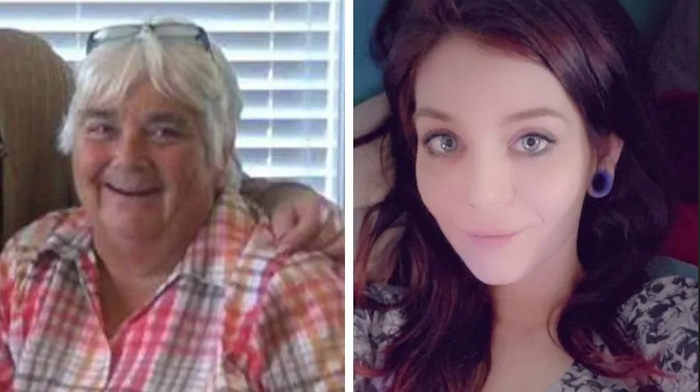
You can make the best of the current situation.
It’s odd. Not much has changed for me. I’ve worked from home for over 20 years, so nothing new there. I see clients, virtually, so social distancing is no problem. No kids to home-school.
My husband and I are homebodies due to his health, so not being able to go out for fun is not a huge sacrifice. With the exception of my small business has taken a hit, I should be good, right?
Then, what are all these emotions coming up? I’ve never felt anything like this.
All at once, I’m feeling depression over the loss of many things: connection, safety, control, freedom, physical contact, a predictable future, financial security, and new clients.
Based on what I do for a living, I know all too well what comes from loss and how mental health is affected.
It’s grief — but a whole different kind for me. I’ve had my share of losses in the past — sudden ones and some that I knew were coming. Among those losses include both parents, two siblings, jobs, and friends.
Not unlike most of you. Yet, this feels different.
Anticipatory grief could describe it, which means we are grieving before we have fully experienced the loss. It’s typically associated with the impending loss of someone who is very ill—been through that one, too.
And, because there is so much uncertainty around the COVID-19 coronavirus pandemic, it feels as if there is no end in sight. As we think about all that is going on, we find ourselves imagining the worst outcome. It’s human nature.
Even while I’m trying to stay grounded and connected to the people who support me, there is still a pit in my stomach. Although I know in my head that this condition is temporary, the uncertainty is unsettling.
As I attempt to stay connected — with family and friends, clients, and colleagues — I hear a certain degree of dread in their voices.
Some call it fear, anxiety, and panic. It feels like pervasive negative energy that is hard to avoid.
So what can we do to make the best of this roller coaster ride of emotions?
As a life coach specializing in transitions, I learn from the experts.
One of my go-to resources is David Kessler, one of the foremost experts on grief. His recent interview in the Harvard Business Review helped me to sort this out for myself.
When asked what people can do to cope with the grief we’re feeling, Mr. Kessler said:
“Understanding the stages of grief is a start. But whenever I talk about the stages of grief, I have to remind people that the stages aren’t linear and may not happen in this order. It’s not a map, but it provides some scaffolding for this unknown world.”
There’s denial, which we say a lot of early on: “This virus won’t affect us.”
There’s anger: “You’re making me stay home and taking away my activities.”
There’s bargaining: “Okay, if I social distance for two weeks, everything will be better, right?”
There’s sadness: “I don’t know when this will end.”
And finally, there’s acceptance: “This is happening. I have to figure out how to proceed.”
Acceptance, as you might imagine, is where the power lies. We find control in acceptance: “I can wash my hands. I can keep a safe distance. I can learn how to work virtually.”
What stage do you recognize as yours?
I’m bouncing between bargaining and sadness and acceptance, with a brief visit back to denial and anger. Kessler is right — it’s not a linear journey through grief.
With the stage identified, how do you manage this thing called anticipatory grief?
There are 6 ways to cope with anticipatory grief during this pandemic.
1. Allow your emotions to flow.
Kessler says, “Emotions need motion” and I cannot agree more. Think about what happens when you stuff down anger and you don’t let it out in a healthy way.
You likely feel a lump in your throat or a knot in your stomach. Your hands may shake. And you may develop a massive headache
That’s an emotion that has nowhere to go. It can be so powerful that you lose yourself in it. It’s vital to take steps to alleviate some of the pressure so you can let the feelings go.
First, acknowledge your feelings and give them a name. If it’s grief, call it grief. Anxiety. Fear. Whatever it is, attach the label to it.
Then, find ways to work through each one, with the ultimate goal of releasing the emotion from your body. The relief you feel will be tangible and allow you to move forward from here.
This can be an uncomfortable exercise. But, when you talk it out with someone you trust, it will become easier. However, if you ignore this step, the rest of these suggestions might not be very effective.
2. Notice what you’re thinking.
If you’re watching too much of the media reports, you may be spending more time in the doom and gloom department than you want.
Consequently, your thoughts may take you down a rabbit hole from which it’s difficult to climb out.
When you notice this happening, make a conscious choice to change the negative thought into one that feels better to you.
For example, instead of thinking, this will never end, you might choose to think, this is just temporary, and we’re going to be okay.
3. Be in the moment.
Anticipatory grief happens when your mind projects into the future and imagines the worst possible scenarios.
When you find yourself doing that, it helps to bring yourself back into the present.
In the here and now, what you imagined hasn’t happened. Take a look around and take note of where you are.
I’m sitting in my living room. The sun is shining, there is a slight breeze, and my dog is lying at my feet. I’m okay.
Then, observe how you are breathing. Slow it down. Take in some deep breaths and exhale slowly.
Being in the present can bring about a sense of calm. You can choose to practice this at any time your mind wanders into the ‘badlands’.
4. Control what you can.
The loss of control can be the most unsettling feeling of all. Along with that loss comes a sense of insecurity, anxiety, and fear that you have no power to influence the outcome of the situation.
But, you do.
Minding your mind and staying present will help you feel more control in this uncertain world.
A simple way to feel more in control is to make a list of all the things that are in your power to influence.
For instance, your list might look like this:
- The time I go to bed and wake up
- The people I hang with to uplift me
- What I choose to think about
- My priorities
- What I talk about
- How often I reach out to connect with my family & friends
- How kind and compassionate I am
- How much I laugh
Write your list and refer to it every time the powerful emotions come up, which makes you feel totally out of control.
5. Be kind and compassionate, reserve judgment, and bring no harm.
The coronavirus pandemic has affected the entire world. It is an unprecedented time where we can honestly say, “We are all in this together.”
No one is immune and we are all doing the best we can — anticipatory grief and all.
Given these facts, there has never been a better time to live by the Golden Rule: Do Unto Others As You Would Have Them Do Unto You.
I want people to be kind to me, compassionate for my situation. And I don’t want anyone to judge me for doing something right for me, even though it may not be what they would do. As long as I bring no harm, I’m good. And so are you.
Each one of us deals with the profound emotional toll in different ways. It’s the perfect time to allow kindness and compassion to emerge.
Understanding and reserving judgment are the best tools we have to help each other as we move through the loss, grief, and worry that permeates our world today.
6. Find the silver lining.
When things feel most grim, it helps to look for the good.
In my case, the neighborhood has come together to help each other.
If someone is making a run for groceries, we all get a text to ask for our shopping list. One person goes to the store and replenishes the cupboards of many.
Are you spending more time with your family at home? Do you share your deepest worries and concerns with your partner more than you did before?
What has changed for the better because you are working from home, schooling your children, or being more conscious of your sanitary habits?
One friend of mine made me laugh when she said she has greater respect for her kid’s teachers and what they go through every day. And, she continued, she only has two at home, not a classroom-full!
For that, she is grateful. She said her silver lining is that this won’t last forever and she can send her kids back to school one day soon.
What have you noticed more of, get to do now, or enjoy better because of your situation? Focus on those.
One of the guests on my podcast went through great adversity and developed a motto that helped her when things got dark.
She now uses it to help her feel better during this pandemic. She says, “The plus side is…” What’s your plus side?
Lastly, don’t try to do this alone. Isolation is not your friend. Connection is.
Whatever the powerful emotions you feel, don’t keep them to yourself. Find someone you trust and get it all off your chest. The worry you feel about what you can’t know is the same worry everyone else is feeling.
Anticipatory grief and all the accompanying emotions can build up like a pressure cooker.
Staying connected with your people will help you release the pressure and take positive steps to keep moving forward in the best ways you can.
Complete Article ↪HERE↩!



